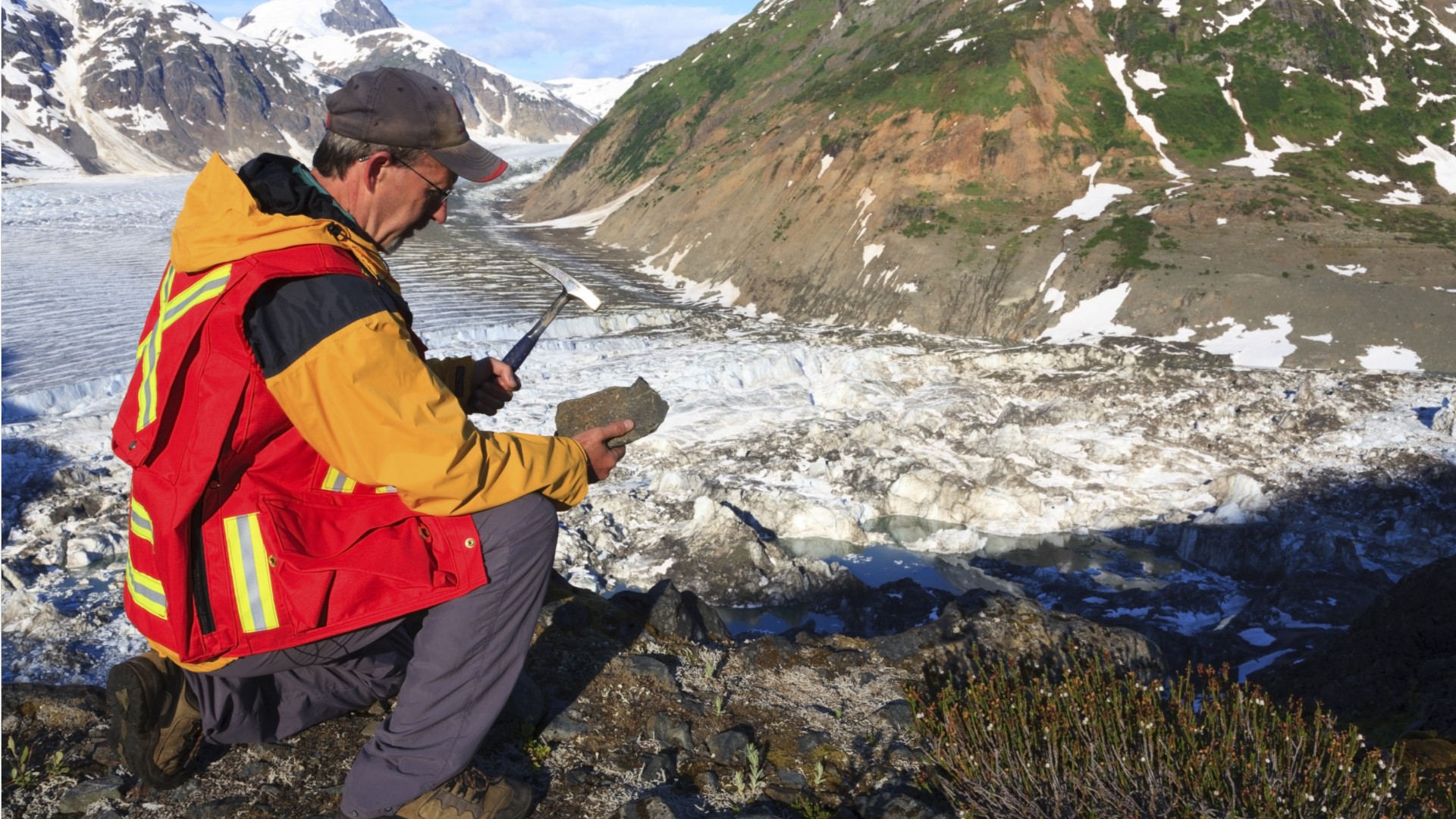Conservation and Forestry Officers
Conservation and Forestry Officers
Career Overview
They are the law enforcement officers of the great outdoors. They're responsible for managing and protecting wildlife and water resources.They enforce the federal and provincial regulations established for the protection of fish, wildlife and other natural resources and collect and relay information on resource management.
Education
Completing a two-year college program or four-year bachelor's degree in biology, ecology, environmental science, or a related field is usually required to obtain this position. Because this is a government position, a clean criminal background is also a necessity.
Future Outlook
Employment of police and detectives is projected to grow 5 percent from 2019 to 2029, faster than the average for all occupations. While a continued desire for public safety is expected to result in a need for more officers, demand for employment is expected to vary depending on location, driven largely by local and state budgets.
Work Environment
Conservation officers and wardens work for governments (federal, state and provincial, or local), on privately owned lands, or in social advocacy organizations.
Recommended High School Courses
- Biology
- Communication
- Environmental science
- Geography
- Botany
- Zoology
- Active Learning - Understanding the implications of new information for both current and future problem-solving and decision-making.
- Active Listening - Giving full attention to what other people are saying, taking time to understand the points being made, asking questions as appropriate, and not interrupting at inappropriate times.
- Complex Problem Solving - Identifying complex problems and reviewing related information to develop and evaluate options and implement solutions.
- Coordination - Adjusting actions in relation to others' actions.
- Critical Thinking - Using logic and reasoning to identify the strengths and weaknesses of alternative solutions, conclusions or approaches to problems.
- Instructing - Teaching others how to do something.
- Judgment and Decision Making - Considering the relative costs and benefits of potential actions to choose the most appropriate one.
- Monitoring - Monitoring/Assessing performance of yourself, other individuals, or organizations to make improvements or take corrective action.
- Operation Monitoring - Watching gauges, dials, or other indicators to make sure a machine is working properly.
- Persuasion - Persuading others to change their minds or behavior.
- Reading Comprehension - Understanding written sentences and paragraphs in work related documents.
- Service Orientation - Actively looking for ways to help people.
- Social Perceptiveness - Being aware of others' reactions and understanding why they react as they do.
- Speaking - Talking to others to convey information effectively.
- Systems Analysis - Determining how a system should work and how changes in conditions, operations, and the environment will affect outcomes.
- Systems Evaluation - Identifying measures or indicators of system performance and the actions needed to improve or correct performance, relative to the goals of the system.
- Time Management - Managing one's own time and the time of others.
- Writing - Communicating effectively in writing as appropriate for the needs of the audience.
- Administration and Management - Knowledge of business and management principles involved in strategic planning, resource allocation, human resources modeling, leadership technique, production methods, and coordination of people and resources.
- Biology - Knowledge of plant and animal organisms, their tissues, cells, functions, interdependencies, and interactions with each other and the environment.
- Clerical - Knowledge of administrative and clerical procedures and systems such as word processing, managing files and records, stenography and transcription, designing forms, and other office procedures and terminology.
- Communications and Media - Knowledge of media production, communication, and dissemination techniques and methods. This includes alternative ways to inform and entertain via written, oral, and visual media.
- Computers and Electronics - Knowledge of circuit boards, processors, chips, electronic equipment, and computer hardware and software, including applications and programming.
- Customer and Personal Service - Knowledge of principles and processes for providing customer and personal services. This includes customer needs assessment, meeting quality standards for services, and evaluation of customer satisfaction.
- Education and Training - Knowledge of principles and methods for curriculum and training design, teaching and instruction for individuals and groups, and the measurement of training effects.
- English Language - Knowledge of the structure and content of the English language including the meaning and spelling of words, rules of composition, and grammar.
- Geography - Knowledge of principles and methods for describing the features of land, sea, and air masses, including their physical characteristics, locations, interrelationships, and distribution of plant, animal, and human life.
- Law and Government - Knowledge of laws, legal codes, court procedures, precedents, government regulations, executive orders, agency rules, and the democratic political process.
- Psychology - Knowledge of human behavior and performance; individual differences in ability, personality, and interests; learning and motivation; psychological research methods; and the assessment and treatment of behavioral and affective disorders.
- Public Safety and Security - Knowledge of relevant equipment, policies, procedures, and strategies to promote effective local, state, or national security operations for the protection of people, data, property, and institutions.
- Sociology and Anthropology - Knowledge of group behavior and dynamics, societal trends and influences, human migrations, ethnicity, cultures and their history and origins.
- Category Flexibility - The ability to generate or use different sets of rules for combining or grouping things in different ways.
- Control Precision - The ability to quickly and repeatedly adjust the controls of a machine or a vehicle to exact positions.
- Deductive Reasoning - The ability to apply general rules to specific problems to produce answers that make sense.
- Depth Perception - The ability to judge which of several objects is closer or farther away from you, or to judge the distance between you and an object.
- Far Vision - The ability to see details at a distance.
- Flexibility of Closure - The ability to identify or detect a known pattern (a figure, object, word, or sound) that is hidden in other distracting material.
- Inductive Reasoning - The ability to combine pieces of information to form general rules or conclusions (includes finding a relationship among seemingly unrelated events).
- Information Ordering - The ability to arrange things or actions in a certain order or pattern according to a specific rule or set of rules (e.g., patterns of numbers, letters, words, pictures, mathematical operations).
- Multilimb Coordination - The ability to coordinate two or more limbs (for example, two arms, two legs, or one leg and one arm) while sitting, standing, or lying down. It does not involve performing the activities while the whole body is in motion.
- Near Vision - The ability to see details at close range (within a few feet of the observer).
- Oral Comprehension - The ability to listen to and understand information and ideas presented through spoken words and sentences.
- Oral Expression - The ability to communicate information and ideas in speaking so others will understand.
- Problem Sensitivity - The ability to tell when something is wrong or is likely to go wrong. It does not involve solving the problem, only recognizing there is a problem.
- Selective Attention - The ability to concentrate on a task over a period of time without being distracted.
- Spatial Orientation - The ability to know your location in relation to the environment or to know where other objects are in relation to you.
- Speech Clarity - The ability to speak clearly so others can understand you.
- Speech Recognition - The ability to identify and understand the speech of another person.
- Speed of Closure - The ability to quickly make sense of, combine, and organize information into meaningful patterns.
- Stamina - The ability to exert yourself physically over long periods of time without getting winded or out of breath.
- Time Sharing - The ability to shift back and forth between two or more activities or sources of information (such as speech, sounds, touch, or other sources).
- Written Comprehension - The ability to read and understand information and ideas presented in writing.
- Written Expression - The ability to communicate information and ideas in writing so others will understand.
- Patrol natural areas to ensure safety or enforce regulations.
- Prepare investigation or incident reports.
- Testify at legal or legislative proceedings.
- Protect wildlife or natural areas.
- Investigate accidents to determine causes.
- Investigate illegal or suspicious activities.
- Issue warnings or citations.
- Apprehend criminal suspects.
- Collaborate with law enforcement or security agencies to respond to incidents.
- Serve court ordered documents.
- Provide safety training.
- Rescue people from hazardous situations.
- Confiscate prohibited or dangerous items.
- Inform the public about policies, services or procedures.
- Observe individuals' activities to gather information or compile evidence.
- Record information about environmental conditions.
- Issue permits or other legal documents.
Approx Salary Expectation
References
Trend Analysis - Explorer the Market, Labour Market Information, Government of Canada https://www.jobbank.gc.ca/trend-analysis.
WorkBC's Career Trek, http://www.careertrekbc.ca/.
O*NET OnLine, National Center for O*NET Development, https://www.onetonline.org/.



